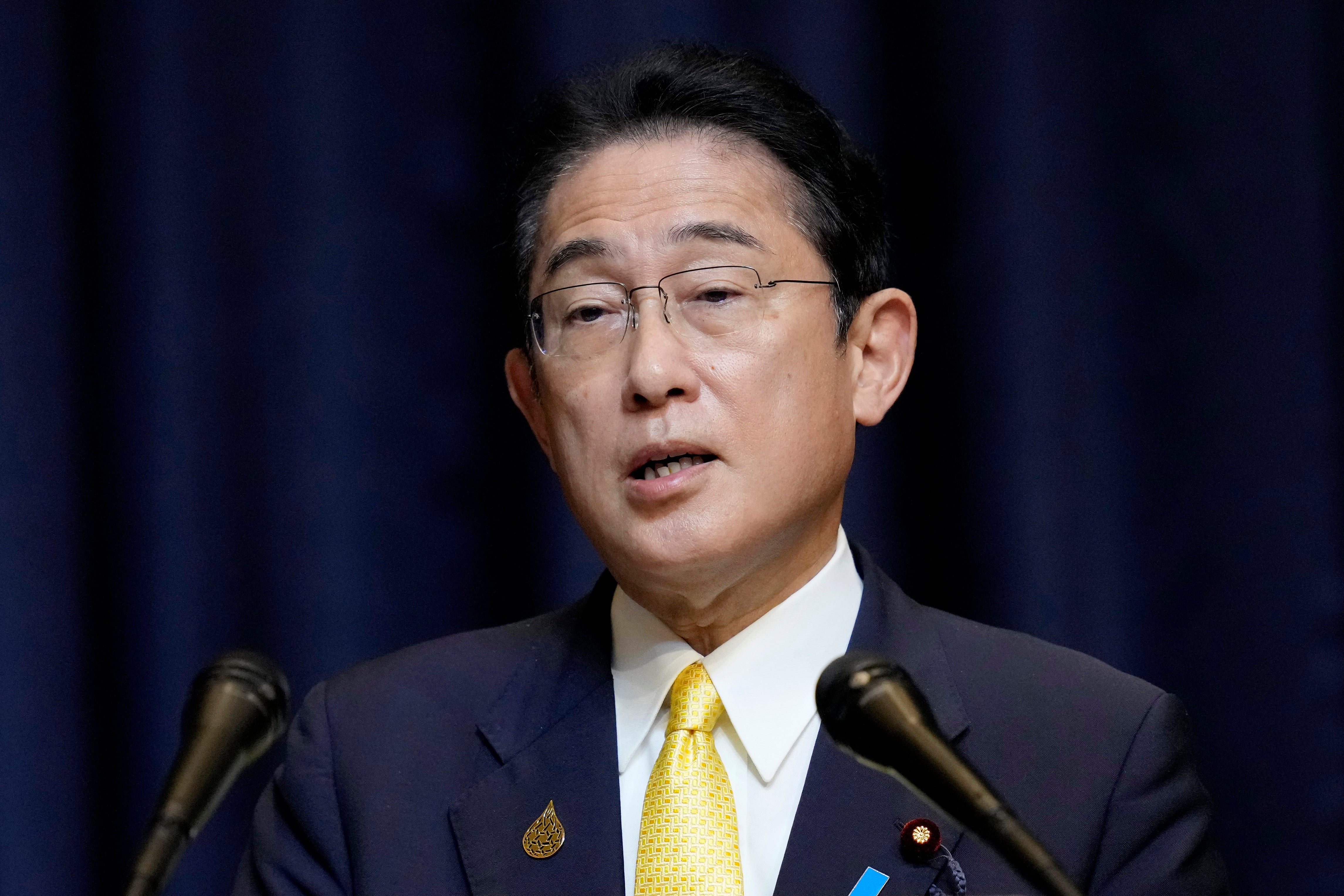Japan enacts law to help Unification Church donation victims
Japan’s parliament has enacted a law to restrict malicious donation solicitations by religious and other groups, which mainly targets the Unification Church, whose fundraising tactics and cozy ties with the governing party caused public outrage

Your support helps us to tell the story
From reproductive rights to climate change to Big Tech, The Independent is on the ground when the story is developing. Whether it's investigating the financials of Elon Musk's pro-Trump PAC or producing our latest documentary, 'The A Word', which shines a light on the American women fighting for reproductive rights, we know how important it is to parse out the facts from the messaging.
At such a critical moment in US history, we need reporters on the ground. Your donation allows us to keep sending journalists to speak to both sides of the story.
The Independent is trusted by Americans across the entire political spectrum. And unlike many other quality news outlets, we choose not to lock Americans out of our reporting and analysis with paywalls. We believe quality journalism should be available to everyone, paid for by those who can afford it.
Your support makes all the difference.Japan’s parliament on Saturday enacted a law to restrict malicious donation solicitations by religious and other groups, which mainly targets the Unification Church, whose fundraising tactics and cozy ties with the governing party caused public outrage.
The South Korean-based religious group’s decades-long ties with Japan’s governing Liberal Democratic Party surfaced after the July assassination of former leader Shinzo Abe. Prime Minister Fumio Kishida, whose support ratings tumbled, sought to calm public fury over his handling of the scandal and has replaced three Cabinet ministers — one over his church ties, another over a capital punishment gaffe and a third over political funding problems.
The new law, approved at this year's closing parliamentary session, allows believers, other donors and their families to seek the return of their money and prohibits religious groups and other organizations from soliciting funds by coercion, threats or linking donations to spiritual salvation.
The law's passage was one of Kishida's top priorities. He is expected to explain the law at a news conference later Saturday.
Abe was fatally shot at an outdoor campaign rally in July. The suspect told police he killed Abe because of his apparent links to the church. A letter and social media postings attributed to the suspect said large donations by his mother to the church bankrupted his family and ruined his life.
A police investigation led to revelations of widespread ties between the church and members of the governing party over shared interests in anti-communist and conservative causes.
The case also shed light on the suffering of children of church followers, including some who say they were forced to join the church or were left in poverty or neglected by their parents' devotion. Many critics consider the church to be a cult because of financial and mental hardships experienced by followers and their families.
The Education Ministry, which is in charge of religious issues, formally started an investigation into the church. It could potentially lead to a court decision revoking the group's legal status, though the church can still continue its religious activity.
The Health and Welfare Ministry is separately investigating questionable adoptions involving hundreds of children among church followers.
Opposition lawmakers who proposed tougher measures have accused Kishida of being lax and slow because his party’s coalition partner, Komeito, is backed by the Buddhist sect Soka Gakkai.
Some experts say the law lacks teeth, including donation limits, protection for children of church members and consideration for those believed to be brainwashed into joining the group and making large donations.
Kishida has said he has no links to the church and has pledged his party will cut all such ties.
The Unification Church, founded in South Korea in 1954 by Sun Myung Moon, obtained legal status as a religious organization in Japan in 1968 amid an anti-communist movement supported by Abe’s grandfather, former Prime Minister Nobusuke Kishi.
Since the 1980s, the church has faced accusations of devious business and recruitment tactics, including brainwashing members into making huge donations to Moon, often ruining their finances and families.
The group has acknowledged cases of “excessive” donations but says the problem has since been mitigated for more than a decade and recently pledged further reforms.
Experts say Japanese followers are asked to pay for sins committed by their ancestors during Japan’s 1910-1945 colonial rule of the Korean Peninsula, and that the majority of the church’s worldwide funding comes from Japan.